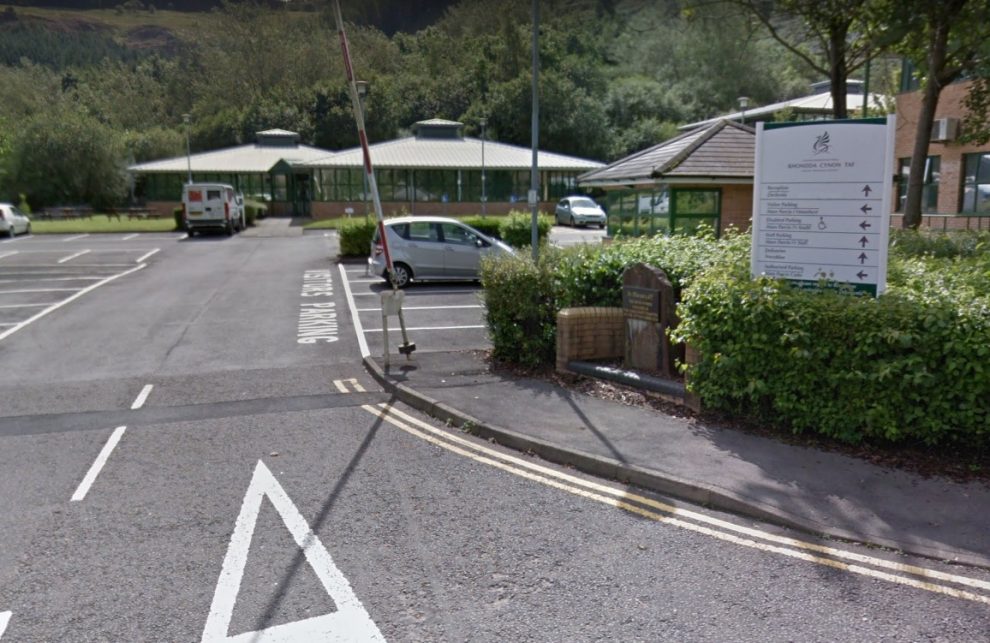RHONDDA Cynon Taf Council’s budget proposals, covering things like council tax, schools, efficiencies, specific service/spending changes and energy, will go out for consultation.
A report approved by cabinet on Monday, January 23, set out the proposals.
On council tax, the medium term financial plan has been modelled based on an increase in council tax of 2% for 2023-24 but the proposal is to consult on a rise of 3.5%. This would generate an extra £1.43m.
The report said the budget gap of £38m which the council faces equates to 7.7% of the budget, excluding authority-wide budgets.
Specific service and spending changes
The council has agreed to consult on changes to waste services which were approved at the same cabinet meeting.
They will see the collection of black bags and bins every three weeks for all domestic waste collections, with a maximum of three black bags per household (for those properties with existing black bag waste collections).
The “no side waste” rule would continue for those with large 240-litre wheelie bin collections but one bag of side waste, no larger than 70 litres is allowed for the standard 120-litre bins.
The proposal will also involve a trial of reusable recycling sacks for dry mixed recycling.
This is set to reduce the budget by about £800,000 over a year.
Another proposal is to reorganise the council-run meals on wheels service and provide a hot/frozen community meal home delivery service with increased charges, which would reduce the subsidy per meal.
Cabinet approved this and it is set to reduce the council’s budget by £427,000 over a year.
In a bid to increase the availability of childcare options, market testing was done to see if local childcare providers could deliver services at the council’s four nurseries.
This confirmed there are a number of experienced providers who have expressed an interest to provide the service and a procurement process is therefore needed.
Cabinet agreed to transfer the running of the nurseries and if childcare providers are secured, the council’s budget would be reduced by £322,000.
Full council has approved the introduction of a council tax premium on long-term empty properties and second homes.
The report said the proposal will support the council to protect and continue the range of packages available to bring empty properties back into use through raising extra council tax, estimated to be £1.5m.
Spending has been identified which is currently funded from revenue budgets which could, in line with accounting rules, be funded from capital budgets, the report said.
These include IT software licence costs, vehicle purchases and RCT Council’s contribution to the Cardiff Capital Region City Deal and the proposal would reduce the revenue budget by £4m.
It is proposed that all fees and charges see a standard 5% increase with the council absorbing the implications of not applying an uplift in line with the CPI rate of inflation, recognising the significant increase in its cost base and level of subsidy.
A number of areas have specific proposals which are also being considered at the cabinet meeting and the fees and charges plans as a whole would generate additional income of £750,000.
The savings made from these specific service and spending changes would be £7.358m.
Schools
It added that schools have previously been advised, for planning purposes, that they should prepare for a difficult period and a potential 2.75% reduction in funding.
The report said they were advised to be prepared to use the flexibility of their own reserves to help and the aggregate level of school balances increased from £12m to £20m over the course of the last financial year (2021-22).
The strategy now proposed will see schools allocated funding in full to cover costs in respect of pay, inflation, energy cost increases, pupil number changes and additional pressures in respect of additional learning needs (ALN).
After adjusting the Individual Schools Budget to reflect lower pension and National Insurance costs, this would provide an additional £18m of funding to schools, the report said.
The reduction of 2.75% that schools have been advised to plan for would result in a budget cut of £5.3m.
It is proposed however that an extra £500,000 is set aside for ALN and a further £500,000 of general funding, reducing the impact on schools to £4.3m.
The report said that overall, the proposal would mean the aggregate schools budget would increase by £13.7m, or 7.9%, with the level of efficiency also reduced to 2.2%.
Energy
The latest available increases for RCT’s energy costs for next year show a 283% increase for gas and a 147% increase for electricity.
The report said it is apparent from latest available forecasts however, that the likely costs for 2024-25 will be lower and there is the opportunity to utilise one-off funding to smooth the one-year spike in energy costs. The proposal is that a £5m contribution from reserves is made for 2023-24.
Efficiency
The report said that following an assessment carried out over a number of months across all services with the aim of protecting vital services where possible, efficiency cuts of £16.164m have been proposed.
The report said this can be delivered from measures which would not “significantly impact on service levels nor service delivery albeit would include operational service reconfiguration which might be apparent to residents and service users”.
The proposals include service restructures and vacancy management, saving £2.26m, service redesign and use of technology, saving £505,000, operational service reconfiguration, saving £2.041m, optimisation of procured and commissioned services, saving £2.97m, an additional in-year (2022-23) efficiency requirement of £1.5m, use of external funding and recharging of £2.507m and general efficiency measures of £4.381m.
As part of the current year’s budget, the report said efficiency cuts of £4.9m were identified and delivered but it was recognised that the ongoing sustainability of delivering efficiencies at this level would need to be considered.
The impact on the budget
The potential budget reduction of £4.256m from schools, the £1.433m in council tax revenue, the £16.164m in efficiency cuts, the £7.358m in specific service and spending changes and the £5m energy reserve leaves a budget gap of £4.115m which the council proposes to fill from its transitional funding reserve to balance the budget and this would leave £2.533m in this reserve.
Background
The provisional settlement from Welsh Government for Rhondda Cynon Taf in 2023-24 is an increase of 6.6% in funding which is below the average all-Wales increase of 7.9%.
The council’s general capital funding allocation has increased by £2.287m to £13.886m, having reduced by £2.165m for this financial year.
The report said the provisional settlement shows that RCT’s 2023-24 Revenue Support Grant and Non Domestic Rates funding will total £470.847m.
The estimated budget gap in the medium term financial plan based on a 3.5% increase in the settlement had been £36.457m but this increase to £52.219m when the provisional 8.2% in the fire levy (£530,000), reassessment of base budget requirements such as special school numbers, capital charges, ALN, demand-led social care, insurance (£1.454m), real living wage pay and pensions (£6.76m) and energy costs (£7m) were taken into account.
But with an extra £13.965m as a result of the settlement compared to the projection in the medium term financial plan and £63,000 in the updated tax base, the council was left with an extra £13.893m of extra funding for 2023-24.
When this is taken into account alongside the original projected deficit of £36.475m and the base budget updates of £15.744m, it left a revised budget gap of £38.326m.
What cabinet had to say
Councillor Christina Leyshon, cabinet member for climate change and corporate services, said: “It’s an incredibly challenging time for local government with all councils in Wales having to make difficult decisions on their finances. As councillors all of us have a responsibility to set a balanced budget.”
She said the recommendations in the report enable them to achieve this despite the financial challenges they find themselves in.
She said the report shows they can deliver a balanced budget without compulsory redundancies and with only marginal service delivery changes in comparison to other councils.
Cllr Leyshon highlighted the multi million pounds-worth of efficiency savings and what will likely be one of the lowest council tax increases in Wales, well below the expected average.
She also said fees and charges are proposed to be significantly below the rate of inflation and on schools she said the budget has already increased by 28% in the last 10 years, adding that the council will fund all pressures next year relating to pay, inflation, energy costs, pupil number changes and ALN.
Council leader Andrew Morgan said there is a “substantial uplift” for schools but even with all of the service changes, savings and increased provisional Welsh Government settlement, it still left a budget gap of £9.1m.
The council is using a £5m energy reserve to cover part of this and £4.1m from its transitional funding reserve.
Cllr Morgan said they are using around £20m of reserves and underspend to cover off the overall budget position.
He added that schools have reserves of about £20m and that it is important to work with them to make sure they deploy those reserves.
He also said the projected 300% increase in gas prices is “quite considerable”.
Cllr Morgan said this budget is probably one and a half times as bad as any year during austerity but said they are only making a few small changes.
On the 3.5% increase to council tax that they’re consulting on, he said residents would not want to see any increase but other councils could be going as high as 8% or 9%.
He said 3.5% is probably at the higher end of where they’d like to go but said “if it means protecting services for the vast majority I think it is the right thing to do” and added “it is a measured way of doing it”.



















